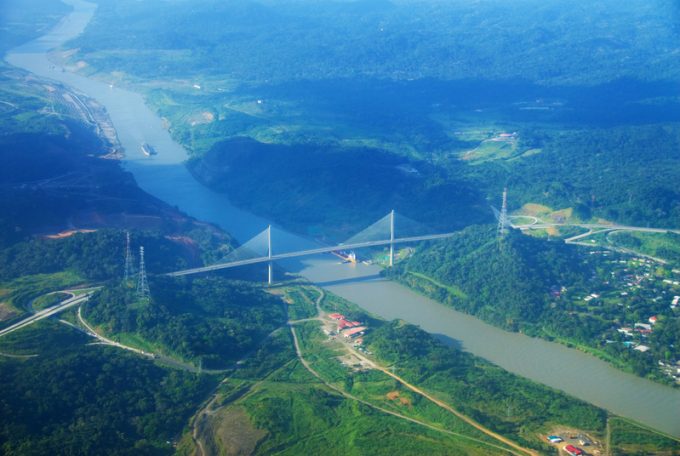Maersk appoints John Wetherell to head its global airfreight forwarding
Maersk has appointed John Wetherell (above) as its global head of airfreight forwarding. It is ...

Shipping lines are facing more disruption and delay at the Panama Canal, owing to the “driest October in 73 years”, as well as anti-mining protests in the region.
The Panama Canal Authority (PCA) announced new operational measures yesterday, following “41% less rainfall than usual”.
It said: “The canal and the country face the challenge of the upcoming dry season with a minimum water reserve that must guarantee supply for more than 50% of the population and, at the same time, maintain the operations of the interoceanic waterway.”
The PCA has introduced reservation slots from now until February, limiting transits to 49 between 3 and 30 November, 22 in December, 20 in January and 18 for February.
It advised: “The Panama Canal urges its customers to make reservations in order to transit as programmed. In addition, information is provided in advance, as well as in real time, so that shipping companies can plan and make the best decisions.”
The slot plan follows draught restrictions and measures previously adopted to ensure the safety of transit operations, such as the use of water re-utilisation basins in the neopanamax locks and cross-filling in the panamax locks.
Operations at the canal have also been affected by protests over an agreement to extract copper in Panama between the government and Minera Panama, a subsidiary of Canadian transnational First Quantum. Protests included street blockades in Panama City, with more than 200 arrests.
Maersk warned customers yesterday: “Due to the ongoing protests in Panama, operations have been irregular due to blockades.”
It said while “terminals have confirmed that they have been operating and will continue”, the carrier was “evaluating different options to move [customers’] cargo in a safe manner” and was doing its “utmost to minimise any impact on cargo”.
More protests have been announced for the next few days to demand a repeal of the agreement, and Crisis24, a risk management platform, advised disruption was likely to continue until “at least mid-November”.
The draught restrictions at the canal due to the low water levels are expected to encourage larger use of west coast US ports, with cargo moving east by rail.
Yesterday, The Loadstar reported that the Suez Canal Authority’s announcement of a 15% fee increase on northbound transits would also prompt demand for Asia-US west coast services.
Analyst John McCown reported that in September, east/Gulf coast ports saw overall inbound volume 6.3% below a 38-month average, while west coast ports were 3.5% above the average. This was the second straight month of under-performance from east/Gulf ports, following a 26-month over-performing streak.
Comment on this article